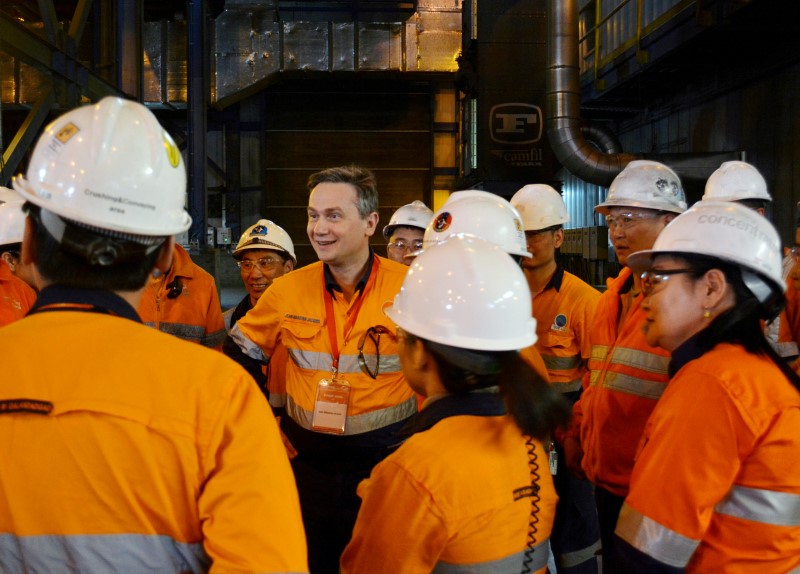By James Regan and Jonathan Barrett
SYDNEY (Reuters) - Rio Tinto (L:RIO) (AX:RIO) will keep a newly formed division that includes troublesome coal and uranium assets, its newly appointed chief executive told Reuters, brushing off expectations it would consider a spin off and eventual sale.
BHP Billiton (AX:BHP) (L:BLT) last year separated and listed South32 (L:S32) (AX:S32), a collection of alumina, aluminium, manganese, nickel and other assets, to allow the world's largest miner to focus on its core operations. This year, South 32 stock has outperformed both BHP and Rio.
Rio's creation of a new Energy and Minerals division last month - an estimated $9 billion of assets including Rio's Iron Ore Company of Canada (IOC) - was seen by analysts and some investors as a step in a similar direction, and towards potential sale.
Jean-Sebastien Jacques, who took the helm on Saturday, said there would be no spin off.
"The answer is no," Jacques told Reuters from London in a telephone intervew. "They are run for cash, that's absolutely clear."
He said that while the unit would not be a focus of major new investment, it would serve as an "incubator" for new businesses outside Rio's core areas.
This could include a move into lithium, which promises to benefit from the electric car revolution.
Rio's lithium assets include the Jadar project in Serbia, which Rio estimates could account for a fifth of annual global lithium supplies.
With cash reserves of over $9 billion, Jacques, known in the industry as "JS", is facing the key question of how to pursue growth after the five years of aggressive cost cutting that followed the collapse in commodity prices.
Aged 44, Jacques is the youngest chief executive in Rio's 143-year history, and the first born in France - a rarity at the top of a fiercely anglophone industry - but he is one of a new generation of post-boom, post-bust executives that must rethink growth for the industry's future, at a time when investors remain wary of major investments.
"We are one of the few mining companies that can look forward to growth," Jacques said. "We have a good balance sheet, we are profitable at the bottom of the cycle, we continue to pay significant dividends – nobody else is really paying dividends at this time," he said.
COPPER RESURGENCE
Jacques has already unveiled sweeping corporate and executive changes aimed at supporting cautious growth. Analysts and investors have said his own background, as the former head of copper and coal, suggests a shift away from iron ore, which has been the single largest contributor to Rio's bottom line.
"We believe that the first commodity that may get out of the over-supply environment is copper," Jacques said.
Jacques said the miner was open to acquisitions, especially in copper - one of few metals where demand is expected to exceed supply by the end of the decade, and new finds are rare - but gave no specifics. Fresh from closing a deal in May to finance a $5.3 billion expansion of the Oyu Tolgoi mining project in Mongolia, a key plank in Rio's push to become a copper powerhouse, investors had cautioned Jacques against rushing into deals, even if more than $30 billion of assets are on the table globally. "When I look at recent prices achieved in the copper space, the prices achieved for the sellers were very good," he said.
"We are not going to rush down this road."
Major copper mine sales over the past months have implied a copper price above the current market, in one case more than $7,000 a tonne - compared to market prices closer to $4,900.
